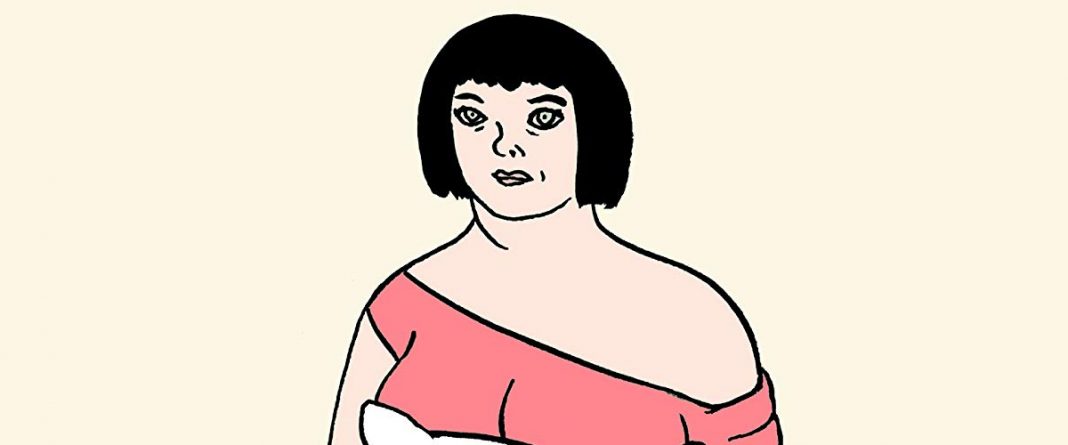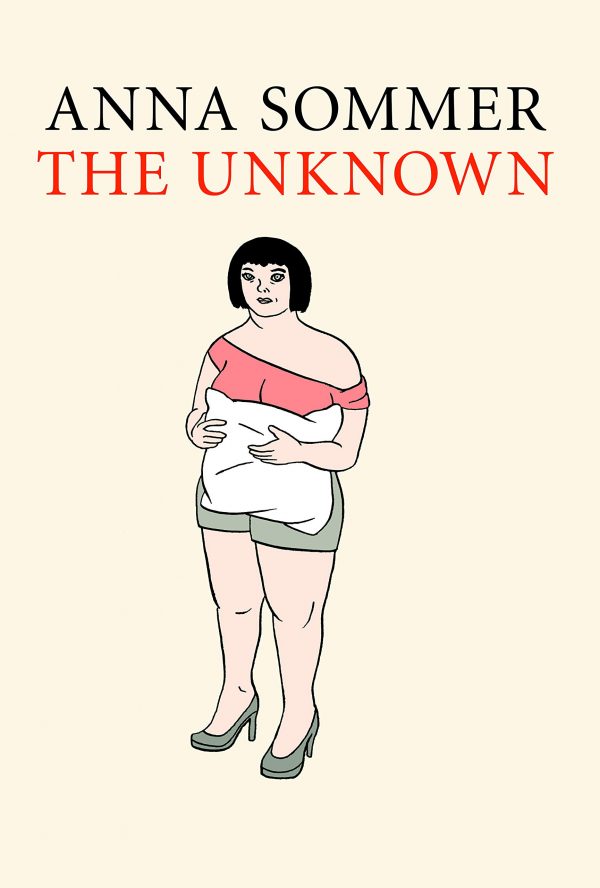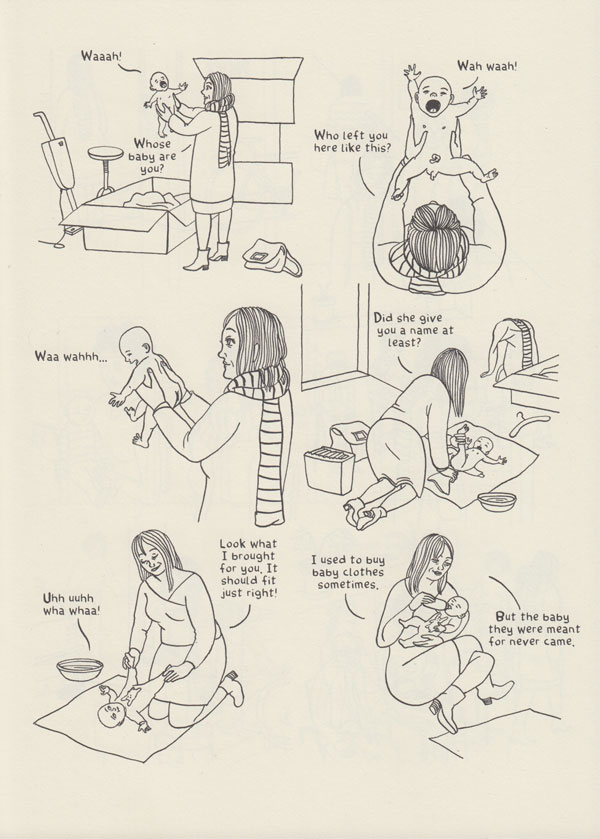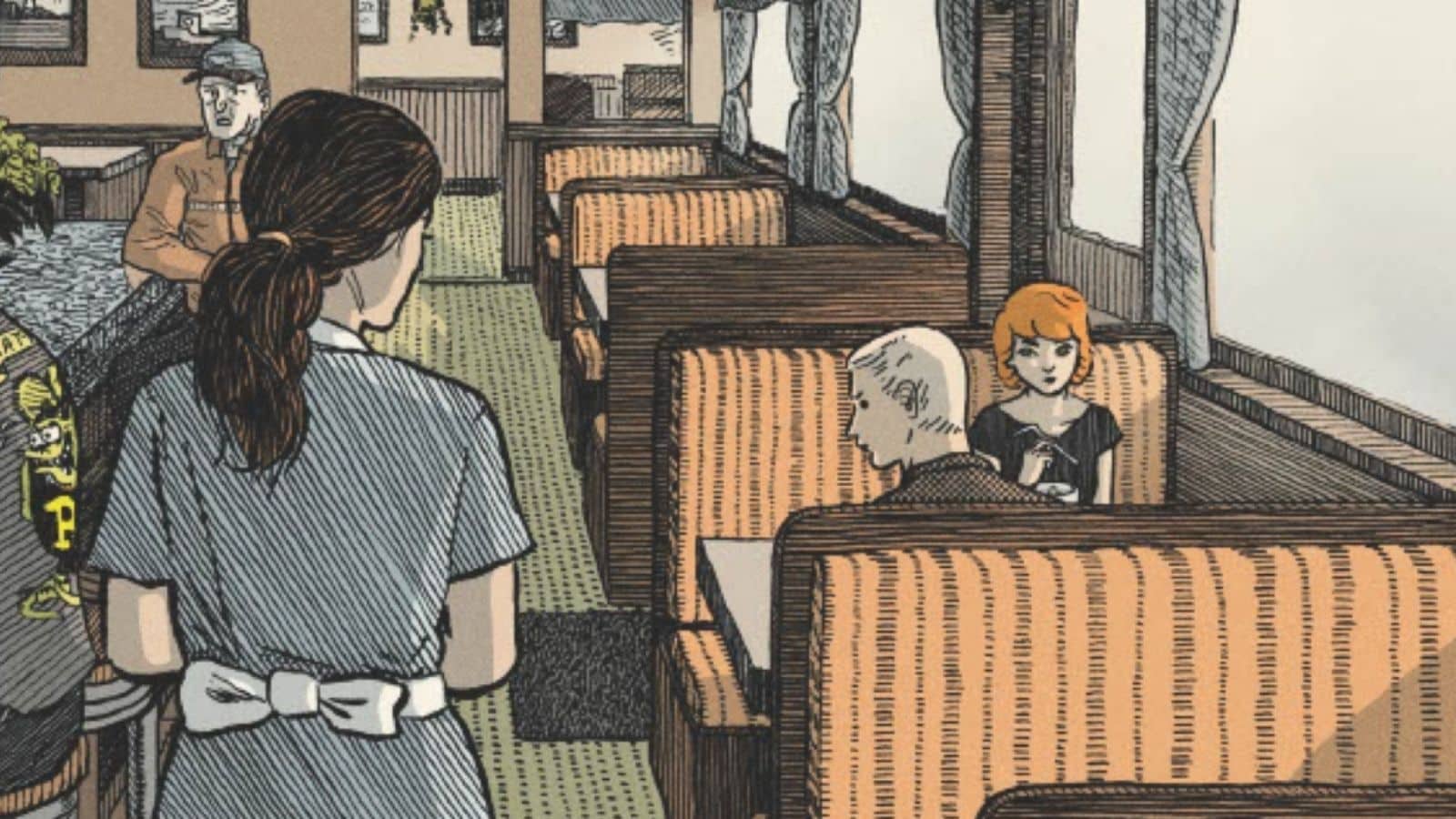The Unknown
By Anna Sommer
Translated by Helge Dascher
Conundrum Press
There are many ways that people allow themselves to become victims of what they believe is fate and the probably the most common is inaction. In The Unknown, German cartoonist Anna Sommer portrays the drama that can swirl around that dynamic as she follows the situations of two women, Helen and Vicky, as they follow separate paths in which inaction plays a role.
For Helen, inaction manifests within her marriage to Paul where she’s let her own desires recede in favor of her husband’s life preferences and that’s made her unhappy and displaced in her own life. Helen runs a boutique and a miraculous change seems possible when one day she finds a newborn baby in one of her dressing rooms. Rather than report the baby, Helen decides to raise it herself — in secret. Her newfound maternity becomes like an affair, where she sneaks out of her “real” life to go take care of the baby that she leaves in her store.
For Vicky, inaction leads to a desperate situation. A student in boarding school, Vicky exhibits the aimlessness and recklessness of the young that puts her in situations that may be beyond her emotional capability to manage, most notably an affair with her history teacher that leads to a pregnancy. Her solution? To mostly ignore the pregnancy and attempt half-hearted efforts to induce a miscarriage, all the while overeating in order to make the pregnancy seem like normal weight gain. Between her inability to handle her situation and the self-loathing the weight gain sets off in her, Vicky’s inaction is piling up into a potential disaster.
In The Unknown, Sommer weaves these two situations together with a deadpan delivery and uncluttered black and white lines that offer a simplicity in presentation for the characters and situations that suit the story well. The connection between the women is perhaps obvious but also perfectly natural and necessary to the two plots and in a way that takes the themes a step further. What becomes apparent is that while either of the women characters can be labelled as people who can’t be proactive in handling their problems, it’s the men who create problems that are not only the engines of inaction in the women. It’s the male dominance of life choices and intimate situations that becomes a form of inactive power — the lack of empathy or discussion to partners creates a static relationship in which doing nothing is the preferred role of the male.
In Sommer’s conclusion The Unknown could be read as hopeful or not at all, or maybe that’s not the important part. Maybe the conclusion just is, it’s merely the result of actions that grow from inaction. In other words, there is no such thing as inaction. Everything is action. Everything affects something.










